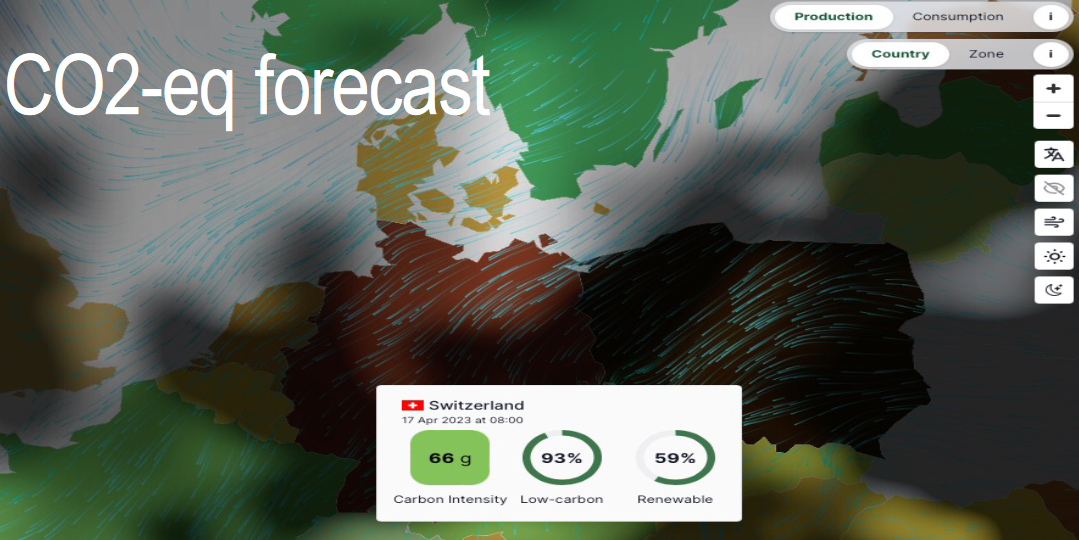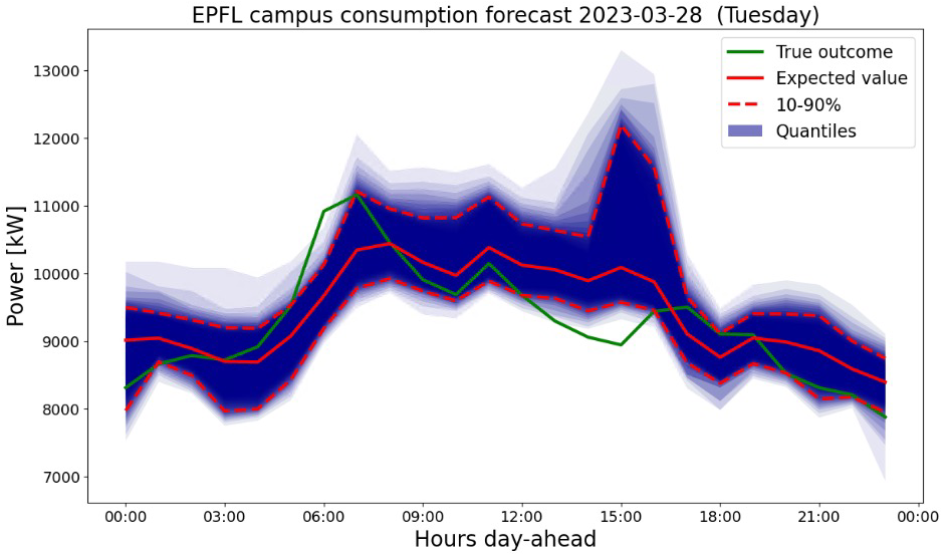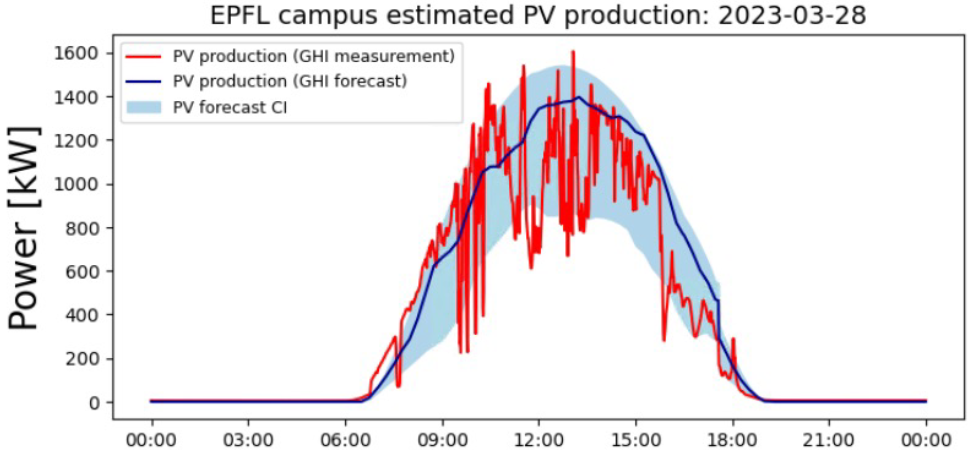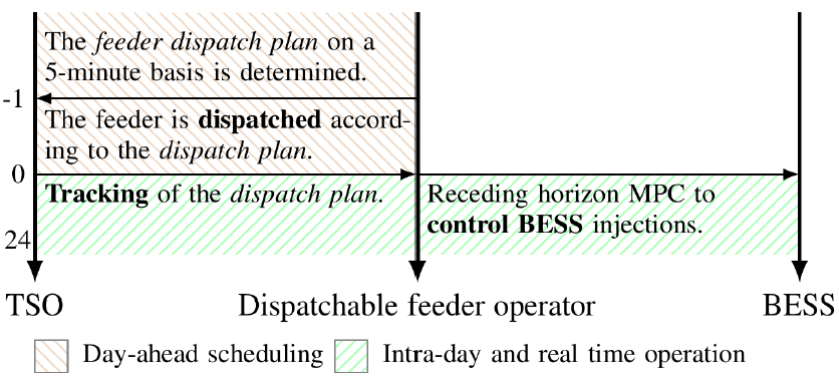Aim
This activity aims to develop and experimentally validate a multi-time horizon model predictive control (MPC) to operate EPFL data center (DC) with the least carbon footprint and cost while providing services to the external grid.
This model will highly rely on advance forecasting tools, for the prevision of:
▪ Dispatchable and non-dispatchable loads (el.)
▪ Dispatchable and non-dispatchable DC loads (el.)
▪ Building heating/cooling needs (th.)
▪ RES production (PV) (el.)
▪ Carbon footprint of electrical power



Technological roadmap
For the implementation of this activity, the following steps will be undertaken:
Phase 1
- Development of the multi-time horizon model predictive control to operate the EPFL DC, including (a) definition of the time horizons adopted to layer the optimal scheduled and control framework of the EPFL DC, (b) quantification of the forecasting uncertainties at different time horizons of the stochastic elements, and (c) development of a multiple time horizon model
- Formulation of the control problem and its convexification considering the constraints of the EPFL heating and electricity networks along with the operational constraints of other controllable devices
Phase 2
- Experimental validation of the multi-time horizon MPC. In this respect, specific key performance indicators will be defined for the quantification of the carbon footprint of the EPFL DC and operational costs before and after the adoption of the proposed control framework.
- Multi-energy system integration and CO2eq content assessment
Expected outcomes
- Development of a forecasting method for the carbon content of the electricity from the power grid
- Development of a multi-time horizon model predictive control that considers electricity's carbon content.
- Strategic optimal operation of the DC to supply heating, cooling, and electricity services while minimizing the overall CO2 emissions of the DC district
- The replacement of the 3 MW natural gas steam boiler of the SV buildings, the main CO2equ. emitter on site, will be investigated
The multi-time horizon model predictive control to operate the EPFL DC consists of:
- Day-ahead scheduling of controllable resources to minimize CO2eq. and (in case) campus energy needs considering day-ahead forecasts
- Intra-day tracking of the day-ahead scheduling accounting for recent forecasts and used by a distributed MPC to determine the real-time set-points of the controllable resources :
- DC workload
- DESL battery energy storage system
- ORC operation

The strategic optimal system operation to supply heating, cooling and electricity services while minimizing the overall CO2 emissions will involve:
a) at the design level: the definition of technologies’ sizes and the module sizes and the opportunities for the energy services’ provision, e.g, hot water or specific heating/cooling services
b) at the operational level: the development and experimental demonstration of the strategic optimal system’s operation layer that will schedule each energy units’ operation based on the carbon content